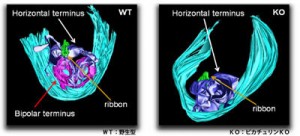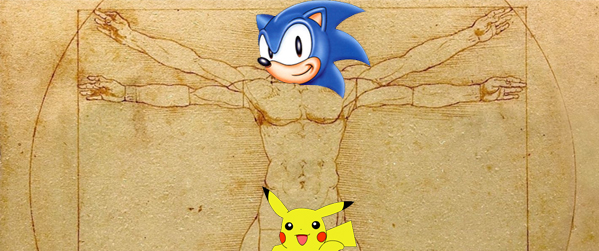We here at GameCola’s crack news team are dedicated to searching far and wide for videogame news, but today I’ll be daring to traverse the very time-space continuum to bring you news from several years in the past—just for you, valued reader!

Normally I expect to see references to videogames in Game Informer, not the science journal Nature, but it looks like gamer geneticists have been tasked with naming the mammalian gene responsible for the growth of fingers and toes, stem cell division, and the organization of the brain. It’s name? Sonic Hedgehog Homolog. Yes, this means that Sonic the Hedgehog is inside of all of our genes, and, judging based on his love of the azure rodent, is now all over the inside of an overly-excited Matt Jonas’s underwear upon hearing this information.
Additionally, it turns out that Harvard researchers created an equally hilarious inhibitor to counteract Sonic Hedgehog Homolo: Robotnikinin.
With all this comedy, why do so many doctors and scientists insist on taking umbrage at these naming choices? And why does there need to be an inhibitor for this gene, anyway? Well, it turns out that when the Sonic the Hedgehog gene mutates, it, much like every Sonic game Sega has put out in the last decade, gets very, very bad. Mutations in the Sonic the Hedgehog gene cause problems in fetal development that keep the brain from properly forming lobes, usually resulting in stillbirth.
Oh…that’s not hilarious. That’s not hilarious at all. And, really, no doctor wants to tell a mother that she just lost her baby because its Sonic the Hedgehog gene mutated and the Dr. Robotnik compound they administered just didn’t work.

Since comedic videogame blogs that end their articles with information about dead babies probably aren’t very good at being comedic videogame blogs, I’m thankful that this isn’t the only time that videogames and genetics have met. Scientists at Japan’s Osaka Bioscience Institute discovered a protein in human retinas that aid in perceiving moving objects. It’s name: Pikachurin.
So, what’s this one’s downside? Does Pikachurin cause Juvenile Diabetes or Harlequin Fetus? Well, actually, the story of Pikachurin is nothing but positive. Not only does it help you see properly, but research into the protein is helping treat Retinitis Pigmentosa, an eye disorder that causes tunnel vision and blindness in about 100,000 people in the United States alone.
So, there you have it: the little yellow guy that you squint and strain to see on a tiny screen for hours at a time actually helps treat blindness.


Ha! This isn’t over, Porter-Potty! Hehe, it was a good article though.
Hmph. And to think I’ve been trying to cure my oncoming blindness with contacts and glasses all of these years!